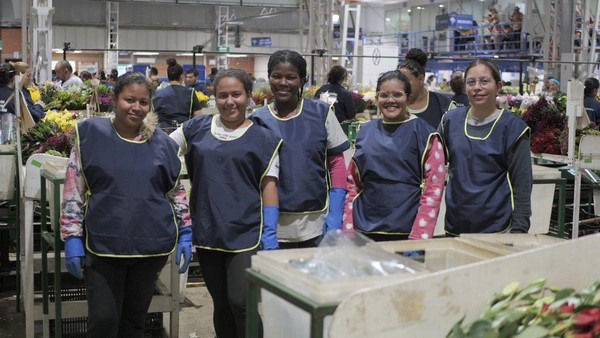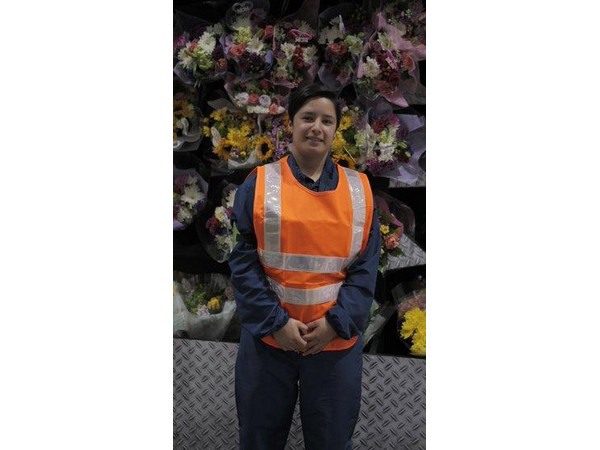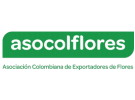On May 14, Mother's Day was celebrated in many countries, and from Colombia, millions of flowers traveled by air and sea to mothers in more than 100 countries. Valentine's Day and Mother's Day are the two most important seasons for the flower industry, accounting for 30% of annual exports. Mother's Day is characterized by the great demand for bouquets, which combine two or more flowers, of different species and/or varieties, in the same bouquet.

Some stats
Stats for 2023 are not in yet, but when looking at last year, between April and May 2022, Colombia exported US$437 million of fresh cut flowers, represented in more than 63 thousand tons, registering an increase of 21% in value and 12% in volume, respectively, compared to the same period in 2021.
When looking at the popular varieties, roses, chrysanthemums, hydrangeas, carnations, alstroemeria, and foliage, are, among others, the main Colombian species that make up the recipe for a bouquet for Mother's Day gifts.
During this season, the main destination of Colombian flowers is the United States, which represents 84% in value. It is followed by Canada (3%), Japan, the United Kingdom, and Holland (2% each) and other destinations (including 95 countries) 7%. The main export destination for Colombian bouquets is the United States (97%), followed by Canada (2%), the United Kingdom (1%), and other destinations (1%).
Flowers are Colombia's second largest non-mining energy export, and the country is the second largest exporter of flowers in the world, after the Netherlands, and also occupies the same position in the export of bouquets after the same country.

Gender equality
And when talking about Mother's Day, Solano stresses that this date is an occasion to pay tribute to all women in the world and thank them for being the undisputed bulwark of the family and society. "That is why, as part of the association's gender equality strategy, their role is especially recognized, and their efforts and dedication are praised. Flowers of Colombia is an example of the Colombian agricultural sector in terms of social and economic development of our mothers, who are heads of household. Floriculture generates 200,000 direct and indirect formal jobs in the country every year. Sixty percent of the direct jobs are occupied by women, mostly heads of household. In addition, the floriculture sector contributes 25% of the country's formal rural female employment."
Asocolflores members have joined forces, and in recent years, they have been able to accompany more than 30 thousand flower-growing families in their search for housing solutions and have helped 13 thousand children and young people by providing them with access to quality education.
"Colombian flowers are not only recognized worldwide for their quality, durability, and beauty. Importers, distributors, and people in general also highlight the immense contributions that this sector makes to our country in areas such as employment generation, development of rural communities, and preservation of the environment, among others, something that today makes the difference when choosing a product."

Bouquets
Colombia is privileged by its geography, that allows growers to produce more than 60 species of flowers and 1,400 varieties of different colors, shapes, and sizes. This variety or diversity is one of the competitive values that make us different from countries like Holland and Ecuador", says Augusto Solano, president of The Association of Colombian Flower Exporters, Asocolflores.
According to Solano, "Until a few years ago, Colombian bouquet makers were governed, almost exclusively, by the parameters established by North American florists, who gave some requirements to be executed by Colombians. That, largely as a consequence of the pandemic, has changed, and today it can be assured that our designers are setting trends, and clearly the scales are aligning, although they still have much room to grow".
"In addition, the strong commitment of Colombian flower growers to sustainability, from its three dimensions (economic, social and environmental), is also characteristic of Colombian bouquet makers."
In this way, they have implemented very demanding quality and phytosanitary management parameters and protocols. "In terms of social contribution, they are characterized by their relationship with issues of inclusion, equity, and community development. These programs work to contribute to closing the labor gap that affects people with different degrees of physical and cognitive disabilities, and people from the migrant, LGTBIQ+, and Afro populations."
For more information: Asocolflores
Asocolflores
www.asocolflores.org
